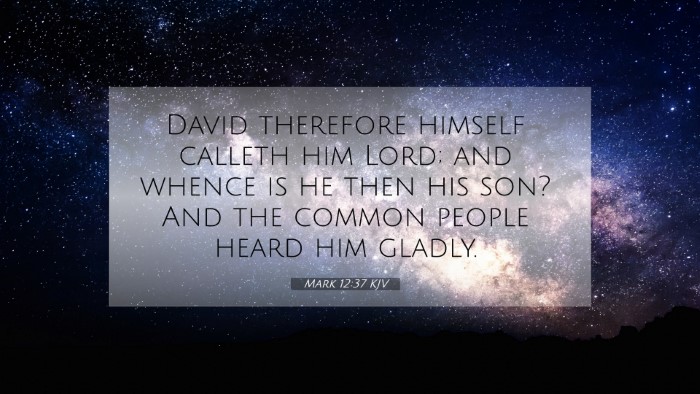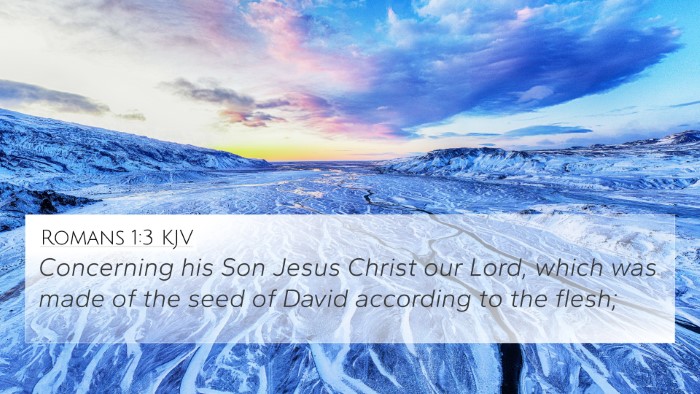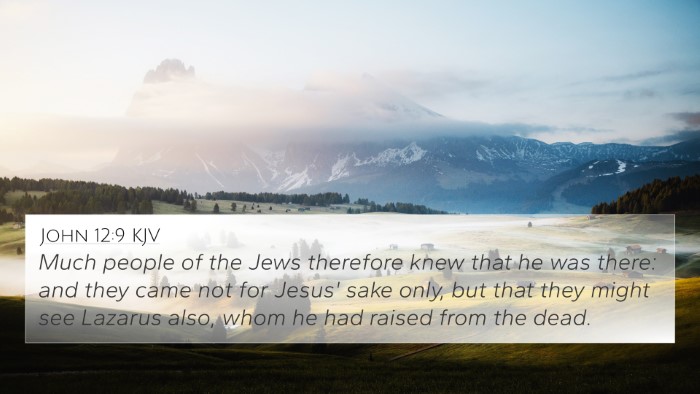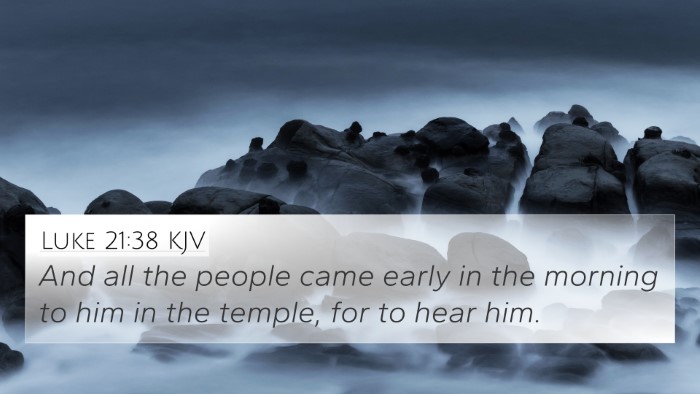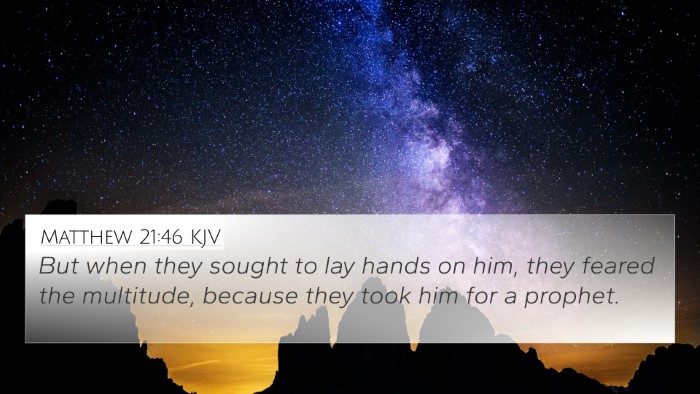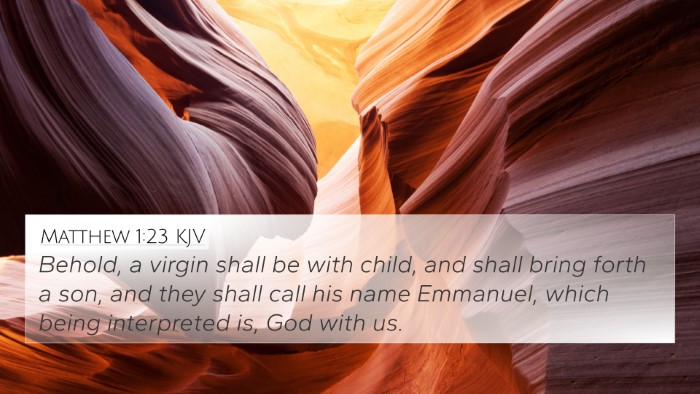Exploration of Mark 12:37
Mark 12:37 states: “David himself calls him Lord. How then can he be his son?”
This verse provokes discussion on the identity of Christ and His relationship to David, serving as a theological foundation for understanding Jesus' divine authority. Let's delve into its meaning, exploring various commentaries while linking related biblical concepts through cross-referencing.
Meaning and Interpretation
The crux of Mark 12:37 lies in the duality of Jesus’ nature—both human and divine. Jesus quotes Psalm 110:1, asserting that while David is his ancestor, he also acknowledges Jesus as his Lord. This highlights Jesus' exalted position in relation to David, indicating His divine nature.
-
Matthew Henry:
Matthew Henry emphasizes that the psalmist, in his prophetic utterance, reflects on the eternal Kingship of Christ. He notes that David’s acknowledgment of the Messiah as 'Lord' points to a deeper truth: the Messiah's pre-existence and divine authority over all.
-
Albert Barnes:
Albert Barnes remarks on the significance of this question posed by Jesus. By showing that David refers to the Messiah as his Lord, Barnes illustrates that the coming of Christ fulfills ancient prophecies, showcasing the divine plan for redemption.
-
Adam Clarke:
Adam Clarke reflects on the rhetorical nature of Jesus' inquiry, illustrating His ability to provoke thought and challenge the prevailing understanding of the Messiah's lineage. Clarke points out that this question illustrates the mystery of Christ, blending both humanity and divinity.
Cross-References and Connections
The connections between Bible verses deepen our understanding of this passage. Here are key cross-references associated with Mark 12:37:
- Psalm 110:1: "The Lord said to my Lord: Sit at my right hand until I make your enemies your footstool." - Directly cited by Jesus to highlight His status.
- Matthew 22:44: "The Lord said to my Lord, Sit at my right hand, till I make your enemies your footstool." - Matthew's account reiterates Mark’s account and emphasizes Jesus' authority.
- Luke 20:42-43: "And David himself says in the Book of Psalms, 'The Lord said to my Lord, Sit at my right hand.'" - Similarity in accounts across synoptic gospels supports the message.
- Acts 2:34-35: "For David did not ascend into the heavens, but he himself says, 'The Lord said to my Lord, Sit at my right hand.'" - Peter's sermon references this for establishing Jesus' authority.
- Romans 1:3-4: "Concerning his Son, who was descended from David according to the flesh but declared to be the Son of God in power..." - Illustrates the dual nature of Christ and His lineage.
- Hebrews 1:13: "To which of the angels did God ever say, 'You are my Son; today I have begotten you'?" - Establishes Christ's unique position as the Son of God, beyond any earthly lineage.
- Revelation 5:5: "Weep no more; behold, the Lion of the tribe of Judah, the Root of David, has conquered." - Foreshadows Christ’s victorious reign and ties back to His Davidic lineage.
Thematic Connections
The theme of Jesus’ divinity, prophesied authority, and Messiahship resonates throughout the scriptures. These thematic connections, rooted in Old Testament prophecy and New Testament fulfillments, underscore the significance of Mark 12:37 within the broader narrative of scripture.
Tools for Bible Cross-Referencing
For deeper study, engaging with tools such as a bible concordance and a bible cross-reference guide can enhance understanding of how verses interconnect. Exploring cross-reference Bible study methods and utilizing bible reference resources can illuminate the parallels and theological implications woven throughout biblical texts.
Conclusion
In Mark 12:37, the interplay of Jesus' identity as both the Son of David and the Lord of David invites profound theological reflection. By examining this verse alongside related passages, we gain deeper insights into the nature of Christ and the fulfillment of God's redemptive plan through Him.
For those seeking to further their understanding, examining the connections between Old and New Testament themes can provide a rich backdrop, revealing a cohesive narrative that affirms Jesus' divine authority and messianic role.


